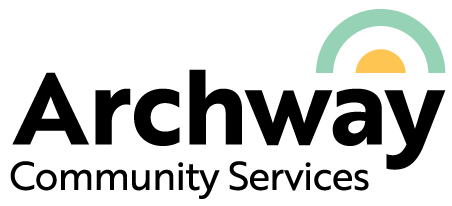
From Recovery to Role Model
Darlene has overcome her fair share of challenges. In 1989 she successfully completed a five-month addictions treatment program at Peardonville House; with her own life progressing positively, she was ready to help others.
While in recovery, Darlene made connections with social workers and community advocates looking to match at-risk youth with adults who possessed greater understanding of the challenges they faced. Recognizing this as a great way to give back to the community that supported her, Darlene initially became a foster parent for two girls, Jennifer and Katie (real names withheld for privacy.)
In her new role as the girls’ foster parent, she was grateful for the help of Archway (then Matsqui-Abbotsford Community Services) who provided resources, learning opportunities and emotional support. In particular, the programming designed for new foster parents included classes on conflict resolution, coping with sexual abuse and anger management.
Network of Support
There were ups and downs along the way, but Darlene’s network included social workers, Ministry representatives and Community Services Executive Director Walter Paetkau. Being a foster parent took strength and resiliency, as well as specialized skills and empathy.
“Walter always had creative solutions” she recalled, including his ability to find humour as a way of coping with tough times.
Foster parents who participated in the initiative also relied on each other for support. “We were all people with our own challenges,” she explained. “It gave us an advantage for helping at-risk youth.” Possessing the strength to persevere during her time at Peardonville House helped Darlene as she looked after the well-being of Jennifer and Katie.
Family Bonds
By 1990, Darlene got married and her family included both foster and biological children. Through raising her own kids – a demanding responsibility for any parent – she still supported Jennifer, Katie and other foster children. They had a lot of fun and created memories, as well as experiencing tough moments and addressing issues like self-harm, fire setting and navigating the court system.
Darlene formed strong bonds with her foster daughters, who lived with her until adulthood. Over time, she gained their trust and discovered they could thrive with a balance of love and boundaries. Happily, Darlene reports she’s still in contact with Jennifer and Katie today, the bonds they formed as a foster family lasting 30 years.
Caregiver Support Today
Since Darlene’s early encounters with Archway, the services and resources we offer have continued to evolve. Today, the Caregiver Support Program (CSP) is developed in partnership with the Ministry of Children and Family Development to provide support to foster families and maintain foster placements.
It provides assistance to caregivers and foster parents as they manage a wide range of challenges and behaviours related to trauma, diagnoses, attachment and transitions.
In the 1980s, Archway was a much smaller organization and our Executive Director was a primary source of information and support regarding all initiatives. While our current ED is intimately involved in supporting and guiding our work, with 90+ programs and 400+ employees, each department is managed and staffed by professionals who are experts in their individual fields.
CSP staff promote self-advocacy, communicate regularly with foster parents and participate in care team meetings. They also provide resources and training with the belief that being a foster parent is an important and rewarding role, but one that requires knowledge, strength and support.
“We were all people with our own challenges. It gave us an advantage for helping at-risk youth.”
